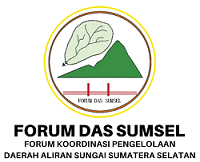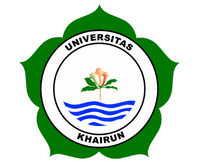Socialization and Assistance in the Processing of Organic Waste Into Eco-Enzyme in 16 Ulu Village, Seberang Ulu II Sub-District, Palembang City
Abstract
Organic waste is waste that contains elements of carbon, hydrogen and oxygen and is easily degraded by microorganisms. The existence of abundant fruit and vegetable waste is rarely used by the community, even though this organic waste can still be reused as material for making eco-enzymes. Eco-enzyme is a liquid extract produced from the fermentation of leftover vegetables and fruits with brown sugar or molasses as a substrate. The process for making eco-enzymes is in principle similar to how compost is made, but water is added as a growth medium so that the final product is a liquid that is easy to use and has many benefits. This activity aims to provide knowledge and skills to the community about reusing household organic waste by processing it into eco-enzymes. The location of the community service was carried out in one of the houses of the residents of RT.071 RW.016, 16 Ulu Village, Seberang Ulu II District, Palembang City, on September 4 2021. The method used was counseling and training for the community about processing organic waste into eco-enzymes. This activity was attended by 15 participants who actively conducted discussions. The results of this community service show that the method of service in the form of counseling, training and question and answer is very appropriate in providing motivation to the community in processing household organic waste into eco-enzymes.
Full Text:
PDFReferences
Candra, Y.N., Hartati, D., Wijayanti, G dan Gunawan, H.G. (2020). Sosialisasi Pemanfaatan Limbah Organik Menjadi Bahan Pembersih Rumah Tangga. Prosiding Seminar Nasional Pengabdian Kepada Masyarakat 2020 (SNPPM-2020)
Lutfiyyah, A., Sylvia, Y.P dan Farabi, A. (2010). Konsep Eco—Community Melalui Pengembangan Eco-Enzyme sebgai Usaha Pengolahan sampah Organik secara Tuntas pada Level Rumah Tangga. Bogor Agricultural university. Institut Pertanian Bogor. http://repositoryipb.ac.id/handle/123456789/27857
Megah, S.I.S., Dewi, D.S dan Wylani, E. (2018). Pemanfaatan Limbah Rumah Tangga Digunakan untuk Obat dan Kebersihan. Minda Baharu 2(1) : 50-58
Ngurah, I.G., Suryaputra, A dan Mudianta, I.W. (2020). Pengelolaan Sampah Organik di SD Negeri 5 Panji. Prosiding Senadimas Undiksha, 1082-1085. Bali.
Rabbani, A.R.D.M. (2020). Takakura Sebagai Solusi Penanganan Sampah Organik Rumah Tangga. Abdimas Galuh 2(1) : 53-64.
Ramadani, A.H., Rosalina, R dan Ningrum, R.S. (2019). Pemberdayaan Kelompok Tani Dusun Puhrejo Dalam Pengolahan Limbah Organik Kulit Nanas sebagai pupuk Cair Eco-Enzyme. Prosiding Seminar Nasional Hayati VII (pp.225-226).
Retno, I. 2010. Hindari Banjir Sampah. (2012). www.nokiagreenambassador.kompasiana.com
Rochyani, N., Utpalasari, R.L dan Dahliana, I. 2020. Analisis Hasil Konversi Eco-Enzyme. Jurnal Redoks : 136-137.
Sasetyaningtyas, D. (2018). Manfaat dan Cara membuat Eco-enzyme di Rumah. Sustaination. https://sustaination.id/maat-dan-cara-membuat-eco-enzyme-di-rumah/
Wiryono, B.M dan Dewi, E.S. (2020). Pengelolaan Sampah Organik di Lingkungan Bebidas. Jurnal Agro Dedikasi Masyarakat 1(1) : 1-3.
DOI: https://doi.org/10.32502/altifani.v3i1.5338
Refbacks
- There are currently no refbacks.
Copyright (c) 2022 Altifani Journal: International Journal of Community Engagement
Indexed by:
Altifani Journal: International Journal of Community Engagement
Diterbitkan oleh Fakultas Pertanian, Universitas Muhammadiyah Palembang
Contact Person:
Rika Puspita Sari, M.Si (HP/WA: +62 813-7490-0341)
Klinik Publikasi Pertanian, Faculty of Agriculture, Universitas Muhamamdiyah Palembang
JL. Jend.A.Yani 13 Ulu Palembang, South Sumatra, Indonesia
Tel. (+62)711-511731; Email: kppfpump@gmail.com; Website: https://jurnal.um-palembang.ac.id/altifani

This work is licensed under a Creative Commons Attribution 4.0 International License.









.png)
14.png)





